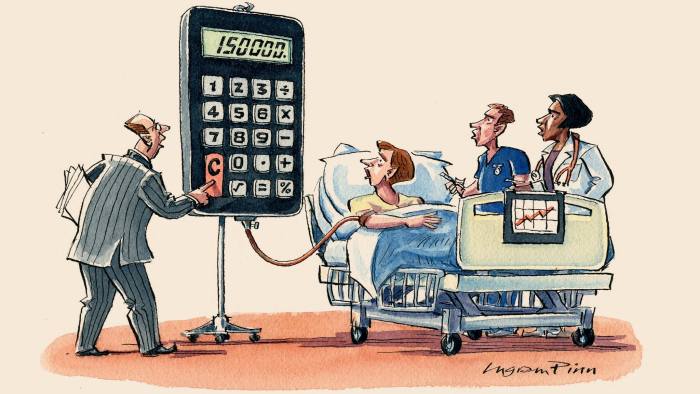Some weeks ago I was posting on
"Evidence-based economics going mainstream" , in fact the title was only taken from the book by Thaler and it is strictly a desideratum. Unfortunately what we are used every week in the university seminars is more related to Chicago style economics: Optimization +Equilibrium = Economics.
The struggle to bring academic discipline back down to earth is an unfinished business. Let's take for example this paper:
Can Health Insurance Competition Work? Evidence from Medicare Advantage. The author achieves this conclusion:
We estimate that private plans have costs around 12% below fee-for-service costs, and generate around $50 in surplus on average per enrollee-month, after accounting for the disutility due to enrollees having more limited choice of providers. Taxpayers provide a large additional subsidy, and insurers capture most of the private gains.
Is this a conclusion?. What are the gains? Monetary gains? Does it make any sense to compare an outdated system like fee-for service with another outdated one such as "managed competition"?
Improving health is the goal, and nobody can answer to this question with this methodologic approaches. Understanding the bounded rationality, heuristics and biases of individuals is fundamental to assess any policy. As Thaler says in his book:
Moreover, much of what economists do is to collect and analyze data
about how markets work, work that is largely done with great care and
statistical expertise, and importantly, most of this research does not
depend on the assumption that people optimize. Two research tools that
have emerged over the past twenty-five years have greatly expanded
economists’ repertoire for learning about the world. The first is the
use of randomized control trial experiments, long used in other
scientific fields such as medicine. The typical study investigates what
happens when some people receive some “treatment” of interest. The
second approach is to use either naturally occurring experiments (such
as when some people are enrolled in a program and others are not) or
clever econometrics techniques that manage to detect the impact of
treatments even though no one deliberately designed the situation for
that purpose. These new tools have spawned studies on a wide variety of
important questions for society.
There is a long way forward in economic (and health economics) research.
PS. It's not a surprise that they have forgotten a key paper on the topic by
R. Frank.
PS. Must see:
The
exhibition Barcelona Haggadot reunites for the first
time in more than six centuries an extensive selection of these splendid
works of the Catalan Gothic period that were dispersed around the world
when the Jews were expelled.
Barcelona, the seat of a monarchy and a hub of Mediterranean trade,
had an urban ethos that was receptive to the most innovative artistic
influences in the opening decades of the 14th century. At this juncture
in the Gothic era, the city’s workshops constituted a highly active
centre for the production of Haggadot, manuscripts that contain the
ritual of the Passover meal, which were commissioned by families living
in the
Call (Jewish quarter) in Barcelona and in other Jewish
communities. Jews and Christians alike worked on Haggadot and shared the
same style and iconographic models.
PS.
Victor Grifols has recently deceased. This obituary explains clearly his commitment with health, ethics and business. RIP



